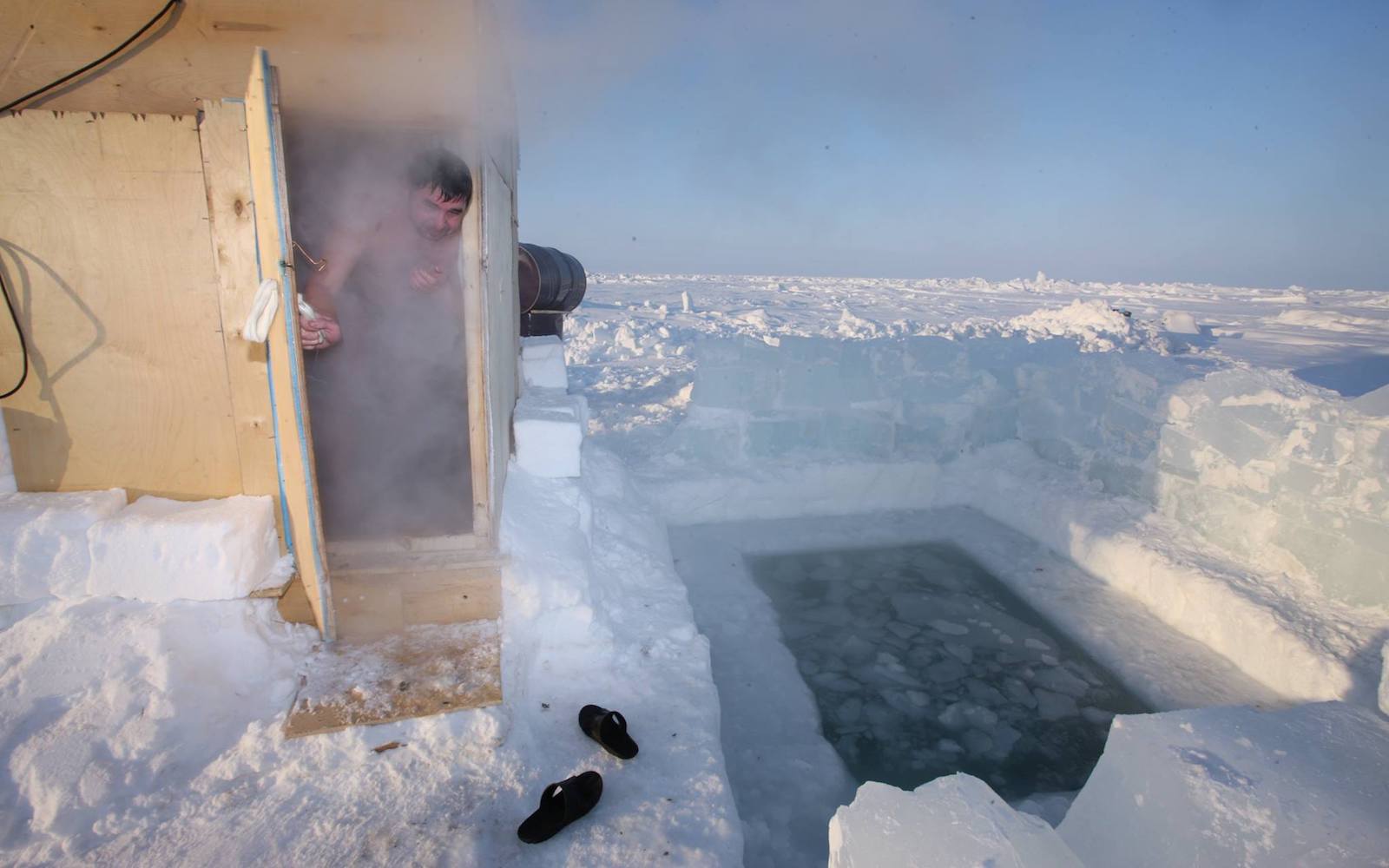At Russia’s North Pole camp, it’s not all fun and games
Temporary and remote, Ice Camp Barneo is the ultimate tourist destination. The same aspects make it a big draw for those looking to send political signals, too.

It sounds like an April Fool’s joke: For $22,130, you can spend two days in a tent, with no bathing facilities, no private accommodations and no choice of what you get to eat. Nor is there any power to charge up your devices, but, with no WiFi, there is little need to do so. What’s more, temperatures during your stay will be as low as minus 40 degrees.
To top it all of, being there is only half the cost. Travellers looking to spend a few days at Ice Camp Barneo, a temporary Russian science camp cum tourist destination cum political statement built on an ice floe near the North Pole each year, must pay their own way to get to Svalbard, the staging point for flights to the camp.
This year, the camp, a private initiative that works with public and semi-public institutions, was scheduled to open on April 1. Typically, there is activity for about a month, though weather and wind determine how long it is safe to remain there. Last year the camp had to close after just 12 days, when cracks appeared in the floe it was built on. While it would take an exceedingly early break-up to cancel the North Pole Marathon, the camp’s marquee event event and a perennial media favorite, scheduled for April 9, other tourist expeditions are on the cusp: Many begin around mid-month and some were cancelled last year.
[Ice Camp Barneo – going with the floe]
Already put off until next year is the Last Ice Hockey Game at the North Pole. Originally scheduled for April 24-25, it will now be held during the 2020 camp. Officially, the reason is logistical, rather than ice-related; the organizers blame the delay on a lack of time to prepare.
The event was planned to draw attention to the decline of sea ice as the climate warms and has already has the backing of the UN and the IIHF, ice hockey’s international governing body. It has also been blessed by the pope and the Russian patriarch and has the support of the eight Arctic states. Organizers are hopeful that Vladimir Putin, who was expected to suit up this year, will be available in 2020.
While such events suggest that Ice Camp Barneo is a source for warm relations, its history indicates that Moscow views it as more of a dual-use facility.
[More military activity may spoil the Arctic’s atmosphere of collaboration, warns a Danish report]
Barneo, staged each year since 2002, has often been linked with Russian military exercises and the Kremlin’s political ambitions in the region, most notably the 2015 visit to the camp by Dmitry Rogozin, a bellicose Putin ally infamous for stating, after he had been issued U.S. and European travel bans for his role in Moscow’s 2014 annexation of Crimea, that “tanks don’t need visas.”
In 2016, Russia held military exercises at the North Pole in connection with Ice Camp Barneo. After originally helping to set up the camp, special forces were sent on to the North Pole, where they trained survival skills, marksmanship and tactical maneuvering.
The troops, only due to be there for a week or so, wound up staying for three because cracks that had formed in the ice floe where they were camped made it unsafe for planes to land there.